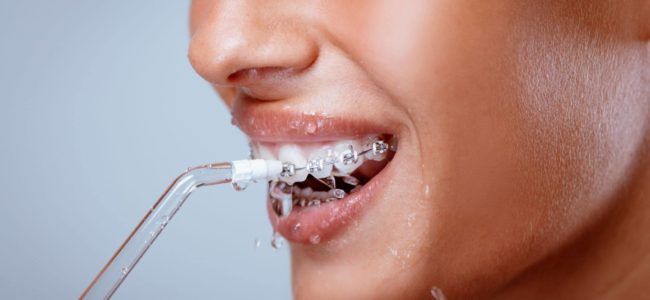Do Dentists Recommend Water Flossers?
A lack of proper oral hygiene can bring about a number of serious problems. From tooth decay to gingivitis and more, taking care of your teeth is incredibly important. It not only impacts your oral health, but poor dental hygiene can also bring about negative impacts to your overall health, including heart health, premature birth in pregnant women, and more.
You know it’s necessary to take good care of your teeth, but how do you know what you should and shouldn’t be doing on a daily basis? Sure, brushing and flossing are a good start, but what if that doesn’t seem to be enough? Many people speak highly of water flossers, also known as water picks, oral irrigators, and dental water jets, but are these something that most dentists recommend? Here at Ideal Dental, we’re committed to providing you with not only the highest quality of dental care, but also the best information about dental hygiene so you can make positive choices for your oral health.
In general, water flossers are a good idea and most dentists do recommend them. However, there is more in play than just using it or not.
Not as a Substitute for Brushing or Flossing
While water flossers can be a great addition or supplement to your current dental hygiene practices, they should not be a substitute for brushing or flossing. They can help maximize your efforts of keeping your teeth clean and have some areas of effectiveness that complement normal brushing and flossing, but they will not clean your teeth well enough on their own.
Water flossers will not remove all the plaque from your teeth, and they can be far more costly than traditional string floss. However, they do have many benefits. They are pretty easy to use and can be great for hard-to-reach areas, like the very backs of your molars. They are great at cleaning away bacteria and food particles from around and under the gumline, and they are great at removing plaque from in between teeth. But again, they are most effective when used in conjunction with twice-daily brushing and flossing.
Technique Is Key
Water flossers, while generally easy to use, do have a bit of a learning curve. They tend to be a little messy, especially at first, and it may take a little while for individuals to figure out their ideal water pressure levels. However, for water flossers to be as effective as possible, users should remember that the techniques they use while cleaning their teeth are hugely important.
Individuals should hold the water flosser at a 90-degree angle to the teeth so that the water shoots straight at them. It is best to start in the back of the mouth and work around to the front and then to the other side to ensure all areas get thoroughly cleaned. Users should also trace their gumlines and aim carefully between each tooth to get as much plaque, bacteria, and food loosened as possible.
Other Considerations
Although water flossers are not meant to be a substitute for brushing or flossing, they can be used as a replacement for traditional flossing in certain situations. If an individual has braces or other dental work that limits the ability to floss thoroughly, a water flosser is a good option. Additionally, if someone has crowns or dental implants where flossing may not be ideal, a water flosser can be used instead. An individual with arthritis or who struggles to maneuver dental floss successfully may find a water flosser easier to use as well.
Talk to Your Dentist
If you’re considering purchasing a water flosser or would like to know how to make the most of your current dental hygiene practices, talk to your dentist. He or she will be happy to give you tips and advice on how to keep your teeth as clean and healthy as possible, regardless of the limitations or obstacles you need to overcome to do so. If you simply wish to add a water flosser to your daily routine but don’t have questions about it, go ahead and do it! It can’t hurt and as long as you utilize the flosser alongside traditional brushing and flossing, you’re sure to see excellent results and improved oral health.
